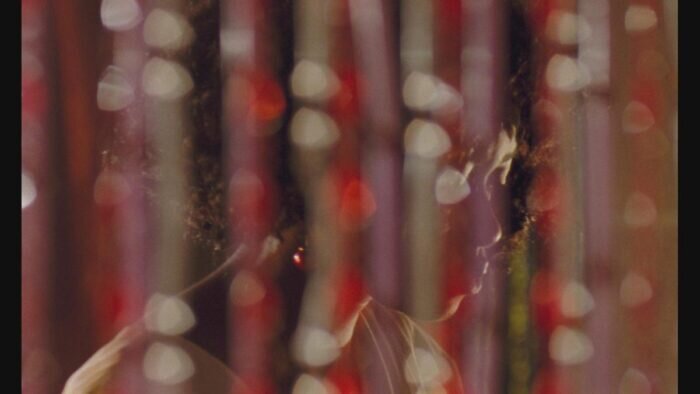LFF 2020: Eyimofe (This Is My Desire)
LFF 2020For so many refugees and migrants, they are dehumanised to the point where their sole characteristic is the destination of their escape. Arie Esiri and Chuko Esiri, with their debut feature-film Eyimofe (This is My Desire), encapsulate this notion with one simple stylistic choice; accompanying the introduction to each character is a fleeting title card with a country written on it, a subtle nod to where they view their future lives. It’s the first of many delicate furnishings in an empathetic, meditative tale of longing and despair.
Mofe (Jude Akuwudike) and Rosa (Temi Ami-Williams) are two trapped souls in Lagos, yearning for a better life outside of Nigeria and Africa’s largest city. The former, a factory technician seeking travel to Spain, is faced with the financial and administrative turmoil following a family tragedy, plunging him into a state of despair. His demanding boss, who seemingly has no care for the safety of her workers, is unmoved by his plight, whilst his opportunistic father – with whom he has a fractious relationship – meddles with the legal case and funeral arrangements in the hope of obtaining money.
Rosa, meanwhile, works multiple jobs to provide for her pregnant sister, Grace (Cynthia Ebijie), with the eventual aim of relocating to Italy. Her passage is being arranged by the charismatic Mama Esther (Chioma Omeruah), who is accepting the baby as payment for the transaction, but Rosa still needs money for both her present and future. She receives support from Mr Vincent (Toyin Oshinaike), her persistent landlord, and Peter (Jacob Alexander), a wealthy American who is on business in the city, reluctantly playing off the pair in order to fulfil her dream.
These tales, presented in separate chapters, only converge in the loosest possible sense – Mr Vincent is a tangential link between the two – but they are both bound by the same thematic thread. There are constant reminders of how desperation has been commodified and monetised, whether it be in Mofe’s extortionate funeral and transport costs or Rosa’s forced decision to endanger another life in order to better her own. They are, in the main, victims of circumstance who are forced to work a lifetime in order to escape it; even a simple card transaction, a throwaway act for Peter, is an arduous task for Rosa.
With the narrative split weighted in her favour, the directors are able to explore gender dynamics and societal pressures. Mofe, though shackled, can at least work for a living – even if it is unsafe – but Rosa is starting from a much lower echelon. At every corner, whether it’s caring for Grace, tolerating Mr Vincent or indulging Peter, she is reinventing herself, with the regular change of hairstyles making her a chameleon-like figure. It does render the character more emotionally distant than her male counterpart, but she is much more accurately a product of her experiences this way.
This portrait of wider society is mirrored by the beautiful presentation of Lagos itself, with cinematographer Arseni Khachaturan’s use of 16mm film creating an earthy aesthetic. Interiors, though sparse and unfurnished, are rich with colour and warmth, the vibrant walls and ceilings juxtaposing the muted costume design. Even with the longing to escape, the camera, much like its characters, is rooted in the heart of Lagos; establishing and exterior shots are notably scarce, with the filmmakers refusing to grant the audience a glimpse of the world both Mofe and Rosa seek. As so often in hardship, the final course is to compromise; after all, it’s the hope that kills you. Eyimofe (This is My Desire), tragically, shows that the unfortunate barely even have that, but that we should never stop trying to equal the balance.


